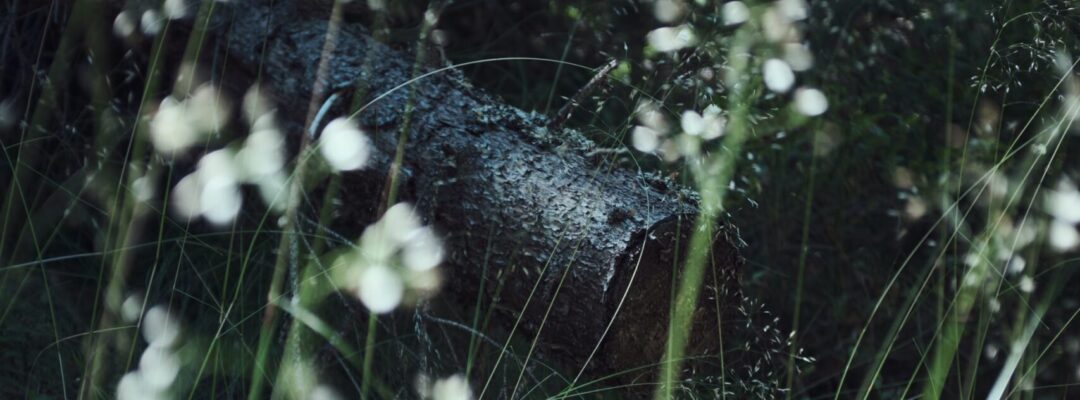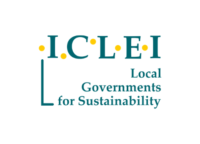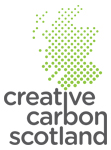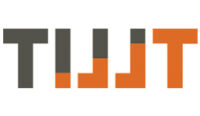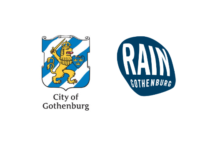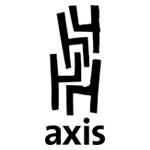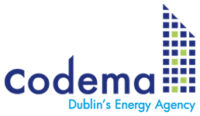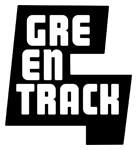Cultural Adaptations explores how artists can contribute to climate change adaptation, combining creative skills and climate adaptation. In Dublin, artist and activist Maeve Stone is embedded within energy efficiency and adaptation strategy organisation, Codema. In this blog, Maeve reflects on the emerging processes, connections and themes of this very unique role.
At this point – midway through the Cultural Adaptations project – I wanted to take stock of the moments of insight and transformation that have happened over the last seven months.
From abstraction to synthesis
In my process as a theatre maker there is a similar trajectory to the one I reflect on here. First comes conversation, imaginative exchange, observation and interpolation. This helps to form a broad net of thinking that is shared by all collaborators; a rich and diffuse web of references, images, ideas and modes of working.
Next is a period of consideration and editing. This takes time. It is a strange and uneasy part of the process because a lot of the ‘work’ is unseen. It happens under the surface through sustained conversations and oblique observation. It’s like a problem you cannot solve by looking at directly. The feeling is one of holding things lightly. Allowing this web of ideas to hang above you. In my experience it is important not to reach for them or pull on them at this point. To do this is to direct the idea when it is still forming, which will undermine the complex and networked potentials it would otherwise have.
This time is unsettling for many people because it feels abstract and undirected but, under the surface, an edit is happening. The feeling now is one of looking up to see the web has thinned out, become more specific, become solid, and threads now reinforced by the sure connection between these ideas. In a practical sense this happens quietly in conversation:
Why does that image or idea hold steady regardless of how our thinking changes?
Why does this or that keep rearing its head?
In my experience, this is the alchemical quality of synthesis when creating clarity between disparate materials. In the case of our Cultural Adaptations research project, it is the meeting of minds from diverse backgrounds, applying creative thinking to practical and technical challenges.
The final stage in this process is a careful arrangement of component parts to allow them to tell their own story. In our project in Dublin, this has come to reveal itself as a talking-walking-talking-walking workshop. If successful this project will help to unlock the potential synergy between a frozen arts sector (currently in a paroxysm of fear about the future and ability to survive up to a year out of action) and local authorities facing the challenge of creating cultural and behavioural change in 97% of the population to achieve climate targets.
…Another web
We see the network of local art centres and venues across the country as spaces that have already established a holistic and non-partisan relationship to diverse community groups. These spaces are sites for social and creative interaction.
Asking artists to host conversations that draw a human picture of how communities have adapted during the pandemic offers us one insight into real narratives of resilience. It demonstrates the behavioural changes that have happened almost overnight in this context. It builds a profile of the tools and thinking people have used to become stronger in an emergency. This alone is invaluable learning and would be of use to local authorities. By choosing our groups specifically we see the potential for even deeper outcomes.
… Creating webs
Looking up now some ideas become strangers and begin to form the spine of a project that we are all invested in. What are the separate notes of interest? What are the themes and ideas that hung, precarious at first, but now feel wedded to one another and increasingly powerful? There are thousands and thousands but the ones that feel like anchor points for the thought process inside this project are:
- The elderly – Their positions in society as sources of generational knowledge, generativity and their potential symbiosis with the youth movement.
- The young – The systems of knowledge lost with each generation; grandparents as seed banks of knowledge for the next generation.
- Networks – Learning strategies and methodologies that grow from ideas in biodiversity.
- Connectivity, interdependence and local expertise – building a network of artists interested in the work of climate change. This as a legacy from our project.
- The Climate Action Plan – How do you make a policy document a living document? Where are the people inside it?
- Artists as change agents – looking at the singular qualities of creative thinkers and how the project supports interesting, challenging, sometimes deviant interventions in established systems of knowledge, power or design.
- Walking – How walking and thinking affect one another.
- Failure – Failure as a key ingredient in success. Looking at the ways in which Ireland can acknowledge and repair its relationship to the Paris Agreement. How we learn from our failures. How we can stand on them as a the strongest possible foundation moving forward. As the laggards of Europe any substantial move forward will offer an encouraging template for other countries.
- Kindness – as a form of radical action and a useful baseline for any climate conversation.
- Feminism – Women inside climate action; the gender divide in grassroots organising and the potential for horizontal / holistic / webbed thinking found in female dominated areas. Images of ‘Mother Earth’ and the semiotic relationship between nature and women.
- Article seven – [of the Paris Agreement] is quoted in the SEC project plan from CODEMA and aims to be “Guided by the best available science … and local knowledge systems” This places a high priority on supporting voluntary green leadership.
- Response-Ability – Finding strategies and spaces that engage our positive drive to respond to the crisis.
- Rituals – The transformative quality of ritual in community – particularly around moments of difficult adaptation, loss or change. The role of live performance and theatre in hosting these rituals in lieu of religion.
- Changing value systems – the Marxist take on an embedded artist project.
- The silver linings – Positive accidentals to be seen during the pandemic – most particularly in relation to behavioural change, a reflection on global value systems, a solidarity of effort for the benefit of the vulnerable, a reflection on nature and space, the time for true reflection and consideration,
- Resilience – What does it look like in different people? How does it grow? Why is it missing for some? What can we learn about specific local adaptation strategies from their reflections on resilience?
Developing a beneficial approach
The strategies we describe use the power of the imagination to create new futures and provide hopeful and diverse paths. They do not provide a formula for scaling-up.
The differences between processes in a series of locations may be more interesting than the commonalities. As such we would hope to make an asset of a ‘multiple’ approach. Multiple artists, multiple groups, multiple localities and a commonality of intention and structure.
This requires a sympathetic ideology on the part of the City Council in order to expose the greatest benefits from the approach: multiple ways to listen, multiple ways to acknowledge and respond.
Maeve Stone’s work with Codema as one of our Cultural Adaptations embedded artists continues into Spring 2021.
Watching and listening resources
“Mourning is about dwelling with a loss and so coming to appreciate what it means, how the world has changed, and how we must ourselves change and renew our relationships if we are to move forward from here. In this context, genuine mourning should open us into an awareness of our dependence on and relationships with those countless others being driven over the edge of extinction… The reality, however, is that there is no avoiding the necessity of the difficult cultural work of reflection and mourning. This work is not opposed to practical action, rather it is the foundation of any sustainable and informed response”.
Flight Ways by Thom Van Dooren

